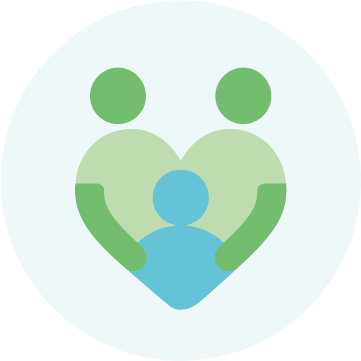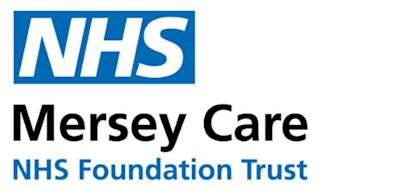I feel like COS-P gives you that support and understanding that [...] you do know what you’re doing or you are good enough. It was, you know, nice to know how I was feeling, other people were feeling the same and I wasn’t alone.
The Circle of Security Intervention (COSI) Study
The COSI study tested whether the Circle of Security-Parenting (COS-P) programme is a helpful and acceptable way for NHS perinatal mental health services to support mothers, birthing parents and their relationships with their babies.
Background to the study
Mental health challenges are common during pregnancy and after birth, and many mothers and birthing parents also experience difficulties bonding with their baby. NHS services offer support, but more evidence is needed on which interventions work best.
While studies in other countries have shown that Circle of Security groups can be helpful for parents and children, they have not yet been tested in NHS perinatal mental health services in England. This study explored whether Circle of Security-Parenting (COS-P) could improve mental health and parent–baby relationships.
About the study
Between January 2022 and October 2023, 371 mothers and birthing parents from 10 NHS perinatal mental health services took part in the study. Participants were randomly assigned to either receive the COS-P programme alongside standard NHS care, or standard care alone.
Those in the COS-P group were invited to attend 10 weekly sessions with 4–6 other parents, where they watched videos and discussed parenting with a trained facilitator. Sessions were offered online or in person, with interpreters and digital tablets provided where needed.
Aims of the study

Mental health
To examine if COS-P improves parent mental health symptoms.

Parent–baby bond
To explore if the group changes parent-baby relationships.

Child development
To explore if COS-P helps babies show better development.

Feedback
To gather feedback from parents and staff on COS-P.
Study findings
Mental health
On average, participants in the COSI study showed meaningful improvements in mental health symptoms. Both the COS-P group and the standard care group improved to a similar extent, with COS-P not leading to greater benefits than regular care alone over the 12 months of the study. Levels of difficulty with emotion regulation also remained the same across both groups.
When we spoke with mothers and birthing parents about their experiences, some reported improvements in mental health, linking these changes to a better understanding of their baby and their approach to parenting. Others felt that while COS-P was helpful, it was not enough to address their difficulties and they needed additional support from their perinatal service. Some noted that COS-P was not sufficient for longstanding challenges but valued how it encouraged reflection on their wellbeing and helped them recognise how their parenting was shaped by their own early experiences.
Parent-baby bonding
On average, mothers’ and birthing parents’ self-reported bonding with their baby improved over time, regardless of whether they received COS-P or standard care. We also video-recorded play interactions to observe how well parents noticed and responded to their baby’s needs and feelings. These observations showed that the quality of interactions was similar between parents who received COS-P and those who did not and remained stable over time.
In interviews, some parents noticed positive changes in their relationship with their baby after COS-P. They felt they better understood their own and their baby’s needs, became calmer and more patient and felt more confident in their parenting. They also described enjoying time with their baby more and feeling less pressure to be perfect. Others said bonding was a gradual process or reported continuing difficulties. Some found other therapies more helpful for bonding, feeling COS-P focused more on understanding than on bonding itself and that bonding was more closely linked to mental health and trauma. A few parents said improvements in their bond came from other factors, such as their baby’s age, sleep patterns or medication.
Child development
The study also looked at children’s development across areas such as language, movement, thinking and learning, and social-emotional skills, relative to their age. We found that children whose parent received COS-P were no more or less likely to show stronger development than those whose parent received standard care alone.
We also assessed attachment by observing children in new situations, during separations and reunions with their parent and when meeting a stranger (a trained researcher). Again, children of parents who received COS-P showed similar attachment styles to those whose parents received only standard care.
Find out more about the COSI study results in our full report.
View the study results bookletWhat do these results mean?
Overall, mothers and birthing parents in the study improved in their mental health and their bond with their baby over the course of a year, regardless of whether they took part in the 10-week COS-P programme. COS-P did not lead to greater improvements than standard NHS perinatal mental health care.
Parents’ views of the programme varied. Some found it very helpful, others felt it was useful in some ways but not enough to address their challenges and some did not find it helpful at all.
Funding
The study was funded by the National Institute for Health and Care Research (NIHR) Health Technology Assessment Programme (NIHR131339) and supported by the NIHR Applied Research Collaboration North Thames. The views expressed are those of the authors and do not necessarily reflect those of the NIHR or the Department of Health and Social Care.
Meet the research leads

Professor Peter Fonagy
Head of the Division of Psychology and Language Sciences at UCL

Camilla Rosan
Co-chief investigator and Clinical and Policy Lead

Kim Alyousefi-van Dijk
Trial Manager




